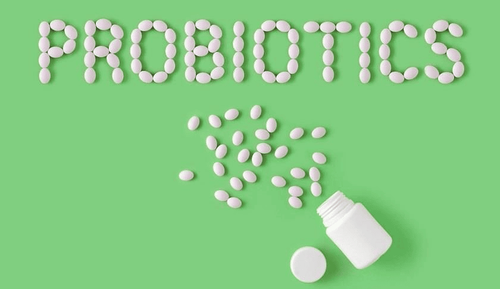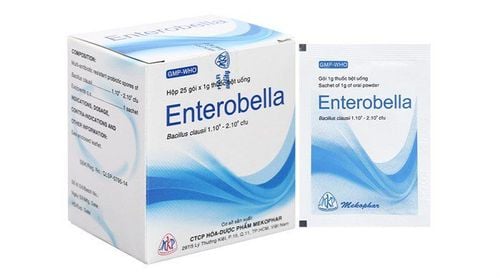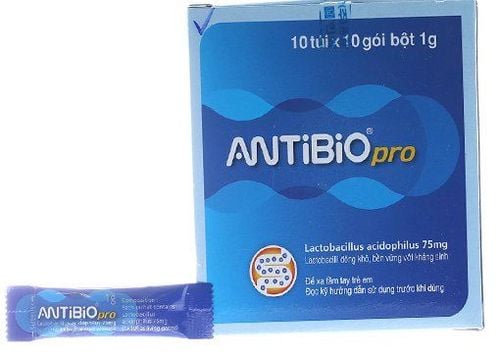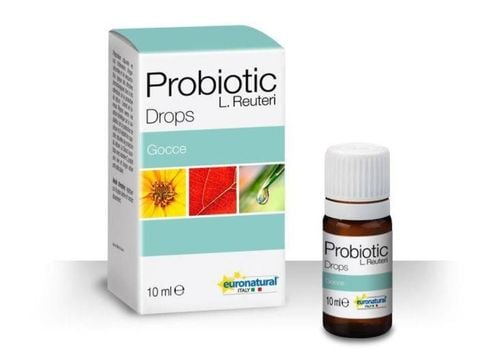This is an automatically translated article.
Article written by doctor Mai Vien Phuong - Head of Gastrointestinal Endoscopy Unit - Department of Medical Examination and Internal Medicine - Vinmec Central Park International General Hospital.
Irritable bowel syndrome, or IBS, is a disorder that affects the large intestine, also known as the colon. According to the Mayo Clinic, 35 to 50 percent of people with IBS are under the age of 35, and twice as many women struggle with IBS as men. Although the exact cause of IBS has not been determined, there are a number of measures that can help relieve IBS symptoms. In this article, we will explore the effects of yogurt on people with Irritable Bowel Syndrome.
1. Irritable Bowel Syndrome Symptoms
Abdominal cramps. Stomachache. Bloating and abdominal distension. Constipation . Diarrhea .
2. Probiotics and Irritable Bowel Syndrome
The use of probiotics has become increasingly popular in recent years but whether they really help people with Irritable Bowel Syndrome (IBS) is still a question.
Everyone has a large number of bacteria living inside their digestive tract. In fact, you have 10 times more bacterial cells in your body than all the other cells combined. And although no one knows for sure what causes IBS symptoms such as stomach pain, cramps, constipation or diarrhea, etc., one theory is that the symptoms are caused by an overgrowth. of harmful bacteria.
On the other hand, probiotics are live microorganisms that are considered good bacteria. The theory of probiotics is that by adding more good bacteria to your digestive system, with supplements or simply by eating foods rich in probiotics, like yogurt, you can reduce the number of probiotics. harmful bacteria and, in turn, help control the symptoms of IBS.
But theory and reality are sometimes not the same. “IBS can be caused by changes in the normal bacteria of the gut and affects the way it functions,” says Maged Rizk, Vice President of Gastroenterology, Hepatology, and Nutrition at the Cleveland Clinic in Ohio. of the intestines, causing the symptoms of IBS. But that's still just a hypothesis. We still don't know the exact cause of IBS."

3. What do the studies say?
There are two main types of probiotics. Some studies have suggested that the best one for IBS is Bifidobacteria, if you take it in large enough amounts. The other is called Lactobacillus. "Bifidobacteria are the bacteria commonly found in supplements, and Lactobacillus is the type commonly found in yogurt," says Dr. Rizk.
A critical review published in June 2018 in the American Journal of Gastroenterology looked at the potential benefits of both probiotics for diarrhea. The authors found evidence to prevent antibiotic-associated diarrhea using both Bifidobacteria and Lactobacillus.
However, another study published in the Journal of BMC Gastroenterology looking specifically at the potential effects of probiotics on IBS suggests that this theory may not be correct. In this study, of 76 people with IBS, half consumed probiotic dairy products twice a day, while the other half consumed probiotic-free products twice a day. After four weeks, IBS symptoms improved in 57% of the probiotic group and 53% of the no probiotic group; After eight weeks, improvement in IBS symptoms was noted for 46% of the probiotic group and 68% of the remaining group. This led the researchers to conclude that probiotics were no better than non-probiotics in improving IBS symptoms.
Similarly, a review published in 2016 in the Journal of Human Nutrition and Dietetics found inconclusive evidence that probiotics can treat IBS symptoms.
4. Should You Eat Yogurt When You Have IBS?
Until more research is done, experts still don't know for sure if probiotics will benefit people with IBS.“Probiotics are becoming more and more popular in the media and in the general public.” “Patients often seek medical advice about whether probiotics would benefit them,” says Christine Lee, MD, a gastroenterologist at the Cleveland Clinic in Ohio. However, randomized clinical trials have not been able to fully demonstrate a specific statistical benefit for IBS.”
Ms. Lee noted that existing studies may have flaws on methodological issues, including small sample sizes, too many variables, or even wide variation in the IBS spectrum from person to person. to someone else. However, she added, “The general consensus at this point is that probiotics are generally thought to be safe and may be helpful in some circumstances.”
In addition, the US Food and Drug Administration (FDA) has not approved the use of probiotics as a treatment for any disease. So far, aside from bloating, studies haven't found any significant side effects from probiotics but you should still talk to your doctor before you start using them. Especially if you are pregnant or have any serious health conditions. Whether consuming probiotics has any long-term side effects has not been determined.
Ms. Lee also warned that probiotics can be contaminated. “Growing millions of bacteria, even those considered healthy, has to be done with the utmost precision,” she said. Any contamination with a pathogenic strain of bacteria can have serious consequences, especially for those with multiple comorbidities, immunocompromised conditions or when immunosuppressive drugs are used. Translate."
To avoid contaminated products, Dr. Lee recommends sticking with larger companies that already have a good reputation and avoiding small, short-lived companies without any track record. . It is important to check the expiration date and follow the storage information, such as refrigerate (if instructed to do so) and keep the product away from heat or direct sunlight.
The bottom line is that it's still not known if probiotics are the "panacea" for improving IBS. However, if you're interested in trying probiotics and have your doctor's approval, you can start by eating yogurt with a positive probiotic culture a few times a day or by taking a probiotic supplement at home. tablet or powder form. Until research reveals more about the causes of IBS and the effects of probiotics, you can conduct your own informal clinical trial to see if probiotics work for you.
See your doctor if you're not sure if yogurt is a good choice for you. During your visit, you might ask the doctor:
How do I know which foods are worsening my symptoms? How much yogurt can I eat at once? Are there any particular brands that are better or safer than others? Have any other Irritable Bowel Syndrome patients had success with yogurt? Is there a better way to get probiotics from my diet? Your doctor and dietitian will be able to recommend the best options for your diet, lifestyle, and preferences. Please follow the website: Vinmec.com regularly to update many other useful information.
Please dial HOTLINE for more information or register for an appointment HERE. Download MyVinmec app to make appointments faster and to manage your bookings easily.
Reference articles: everydayhealth.com, livestrong.com














